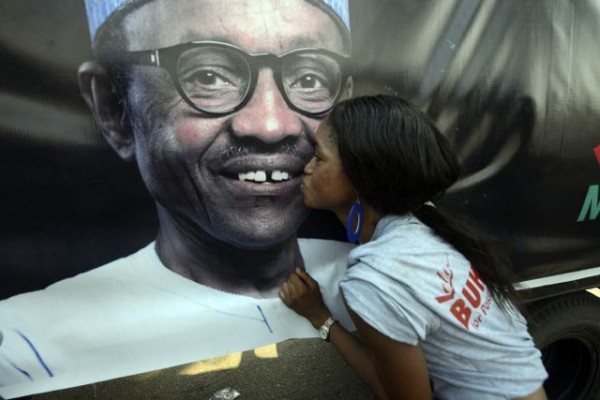The Nigerian presidential election, which took place this past weekend, was a spectacular display of the democratic process as millions of nigerians waited for up to 12 hours to vote under sun and rain, after which they watched patiently as their votes where counted on live TV.
Like all good contests, an undisputed winner emerged. But things did not become official until Muhammadu Buhari picked up his “certificate of return” from the chairman of the electoral commission. With the proof of his office as President-elect in hand, Buhari released an official acceptance speech yesterday.
[Read our selection of the 10 best quotes HERE].
Whether Buhari means what he expresses in the speech is not the point here. I’m interested in how the speech works at the level of language and rhetoric.
A post-election acceptance speech is a crucial political document. It marks the moment when the newly elected president claims the leadership he or she has been given.
It is common for the president-elect to thank the voters, restore morale, and reiterate promises of change while being honest about the state of things and the challenges of the tasks ahead. The speech should project the president as strong and resolute but also beholden to the people. Apart form a call-to-action, there is also some attempt to extend a hand of conciliation to the defeated candidate.
All in all, apart from being well-crafted, Buhari’s speech is a rhetorical winner.
Those who like poetic and flowery language might be a little disappointed. But it is the simplicity of the speech that makes it come across as honest.
Buhari does a good job of speaking to what Nigerians believe and desire most in politics but also what they fear the most.
Right at the beginning, he situates his election to the Presidency as a break in Nigeria’s political history. His assumption of office separates the “long night [that] has passed” from “the daylight of new democratic governance” that “has broken across the land.”
A strong start given that Nigerians typically think of their lives as having been one long, continuous night of suffering. It’s important that Buhari makes it clear that he simultaneously represents a break from the past and the beginning of something new.
One of my favorite moments is his invocation of the dead. This happens early on in the speech. He has just celebrated the outcome of the election as a history-making moment, but he quickly reminds his listeners that the victory has come at great cost. In a moment that we hardly see in Nigerian political discourse, he remembers those who died during the election, calling for a “moment of silence” and saying that their “sacrifice” is what brings “us to this fine and historic hour.”
My second favorite moment comes at the end when he speaks of the nation as something he loves. “My love and concern for this nation and what I desire for it extends to all,” he remarks. This point may seem trivial except that love is just not the typical way of talking about Nigeria in the political public sphere. Nigerian leaders never speak of their love for the country. Their ideas about the country is typically more transactional than sentimental. That’s why Buhari’s expression of love is a small but fine moment worth preserving.
But what really gives the speech its power is the skillful use of contrasts. “Rule” is contrasted with “governance,” democracy as an empty “form” is contrasted with democracy as “substance,” being above the law and beyond its sanction is contrasted with being below the law and beyond its protection, cast and counted votes is contrasted with votes that are allowed to count, a government that “stops, stands or idles” is contrasted with a government that “crawls, walks and runs to do the job.
This use of contrast is an age-old technique of political rhetoric. Think of Mark Anthony’s statement “I come to bury Caesar, not to praise him.” But the technique is adapted to Buhari’s speech in a way that clarifies all that he claims will be different about the future and his leadership.
Kudos to Buhari’s speech writer for making all the right moves.
***************
[Read the full speech HERE.]
Image by AFP PHOTO / PIUS UTOMI EKPEI










Pearl Osibu April 07, 2015 15:26
I hope he continues working with this team that were able to transform a man that so many considered a villain to a figure of hope. He will need this machinery to continue to document and laud his successes and prevent all the faux pas we have witnessed in the past that made us cringe with embarrassment and hide our faces in shame.